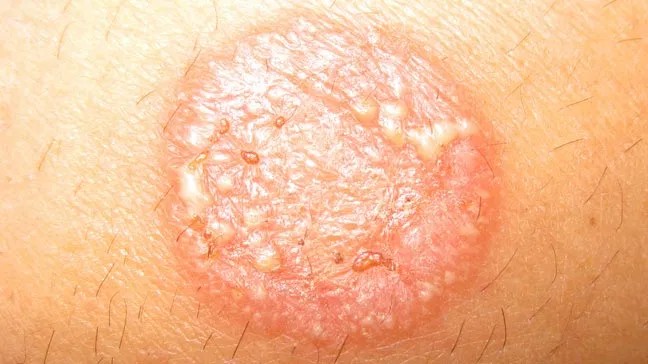Introduction
Ringworm, also known as dermatophyte or tinea, is a common skin condition caused by fungal infection. It is a highly contagious disease that affects dead tissues such as skin, scalp, hair and nail. If you suspect a fungal infection, kindly make an appointment klinik kesihatan (appointment with doctor) to confirm the diagnosis and receive appropriate treatment. In this article, we will look into detail on what to do if you are infected with ringworm.
Signs and symptoms
Ringworm infection on the skin commonly shows characteristic features of ring-shaped rashes associated with itchiness. The outer layer of the rashes might appear raised while the inner layer of the ring may be seen as clear or scaly. It might lead to hair loss if the scalp is affected, while infection of the nail might lead to thickened nail and discoloration.
What to do if infected with ringworm?
In general, patients should follow these general measures and treatment might differ depending on the location of ringworm infection.
General measures
- Keep the infection site clean and dry all the time.
- Do not scratch the affected part to avoid further infection and scarring.
Tinea capitis (ringworm infection of scalp)
Tinea capitis might affect both the hair and scalp, leading to redness, itchiness and hair loss in the affected area.
Oral antifungal medication will be needed for this group of patients as application of cream does not reach the hair follicle effectively. Treatment usually lasts for at least 4 weeks.
Tinea corporis (ringworm infection of body)
Loose fitting clothing is recommended for patients with tinea corporis, especially in hot and humid weather.
Antifungal cream can be applied around the rash for 1-2 weeks until the rash disappears. Oral antifungal medication might be needed if the infection affects the hair area as well.
Tinea cruris (ringworm infection of the groin, commonly known as the jock itch)
Warm and damp environment on the human body provides an ideal condition for fungus to live and grow. The groin, inner thigh and buttocks are commonly affected with ringworm.
Antifungal cream is the treatment of choice for jock itch. It can be added with the application of steroid cream to relieve the itch.
Tinea pedis (ringworm infection of the foot, also known as the athlete foot)
Fungus grows well in warm and moist environments which are commonly found on sports equipment, locker rooms, socks and closed shoes. The condition usually affects athletes who wear tight-fitting shoes and sweat heavily in them.
As fungi usually survive in moist areas, it is important to keep the affected area dry, especially in between toes. Dusting powder might help in keeping the affected area dry all the time. Patients are also suggested to wear loose fitting shoes.
Antifungal ointment is useful in eliminating the fungal infection in this area.
Tinea manuum (ringworm infection of hand)
Fungal cream is to be applied on the affected area until symptoms improve.
Preventive measures
Preventive measures are important to prevent reinfection of ringworm and to prevent the infection from spreading to households.
- Avoid sharing personal belongings such as towels, clothes and comb with others.
- Clean your personal belongings such as towels and socks with hot wash of 60 degree Celsius to kill the fungal spores.
- Clean your home and shared areas such as gyms and locker rooms regularly.
Conclusion
Ringworm infection is a contagious disease that affects dead tissues such as skin, hair and nail. Sign of infection is easily noted due to the characteristic features of ring-shaped rashes associated with itchiness. Most skin infections are easily treated with over-the-counter antifungal cream while severe infections might require additional treatments. Do make an appointment to consult your doctor if you are suspecting a ringworm infection to receive prompt treatment.





